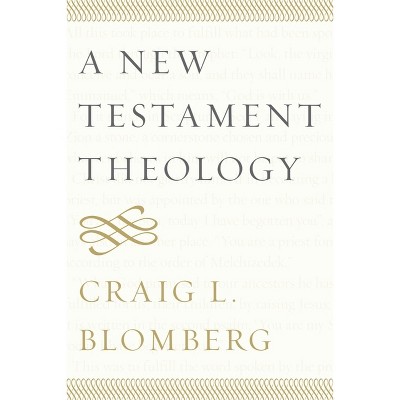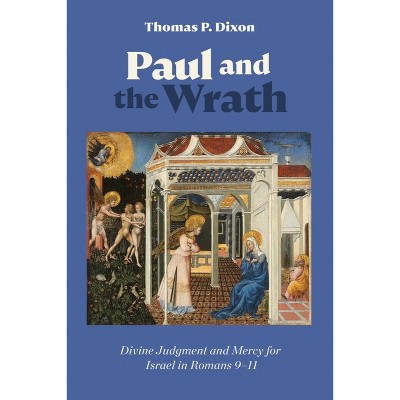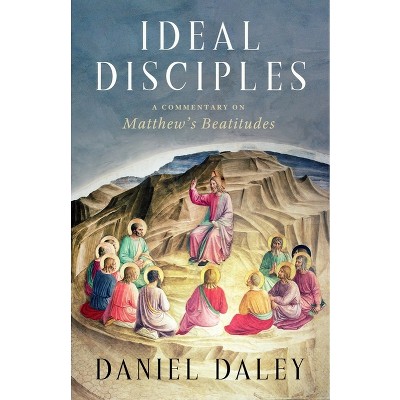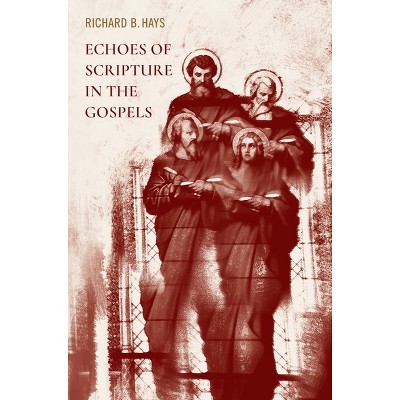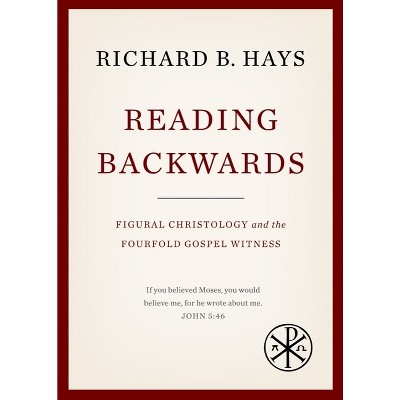Sponsored

Strangers to Family - by Shively T J Smith (Hardcover)
In Stock
Sponsored
About this item
Highlights
- In Strangers to Family Shively Smith reads the Letter of 1 Peter through a new model of diaspora.
- About the Author: Shively T. J. Smith is Assistant Professor of New Testament at Wesley Theological Seminary in Washington, D.C.
- 229 Pages
- Religion + Beliefs, Biblical Studies
Description
About the Book
First Peter does not recycle standard diasporic identity, but is, as Strangers to Family demonstrates, an epistle that represents the earliest Christian construction of diaspora as a way of life.Book Synopsis
In Strangers to Family Shively Smith reads the Letter of 1 Peter through a new model of diaspora. Smith illuminates this peculiarly Petrine understanding of diaspora by situating it among three other select perspectives from extant Hellenist Jewish writings: the Daniel court tales, the Letter of Aristeas, and Philo's works.
While 1 Peter tends to be taken as representative of how diaspora was understood in Hellenistic Jewish and early Christian circles, Smith demonstrates that 1 Peter actually reverses the most fundamental meaning of diaspora as conceived by its literary peers. Instead of connoting the scattering of a people with a common territorial origin, for 1 Peter, diaspora constitutes an "already-scattered-people" who share a common, communal, celestial destination. Smith's discovery of a distinctive instantiation of diaspora in 1 Peter capitalizes on her careful comparative historical, literary, and theological analysis of diaspora constructions found in Hellenistic Jewish writings. Her reading of 1 Peter thus challenges the use of the exile and wandering as master concepts to read 1 Peter, reconsiders the conceptual significance of diaspora in 1 Peter and in the entire New Testament canon, and liberates 1 Peter from being interpreted solely through the rubrics of either the stranger-homelessness model or household codes. First Peter does not recycle standard diasporic identity, but is, as Strangers to Family demonstrates, an epistle that represents the earliest Christian construction of diaspora as a way of life.Review Quotes
Shively Smith offers a powerful reading of 1 Peter as diasporic literature that teaches its audience how to navigate the world as Christians.
-- "The Christian Century"Strangers to Family is an interesting historical analysis with direct implications on contemporary life. This combination of scholarly investigation and tangible significance makes Strangers to Family worth the time and effort.
--Mark Owens "Journal of the Evangelical Theological Society"[ Strangers to Family] is a model of how serious biblical scholarship, rooted in careful examination of texts in their historical context, can illuminate modern-day issues. As such, the book deserves a wide and appreciative audience.
--Mark W. Hamilton "Restoration Quarterly"Overall, this book is extremely well-written, and filled with many valuable insights. Especially illuminating is the way that 1 Peter's vision of diaspora is set in contrast to that of other Second Temple authors, thereby emphasizing the letter's unique perspective.
--Travis B. Williams "Expository Times"Seldom is scholarship so well written, engaging, and informative. It is also timely and pertinent. S.'s discussion illuminates how those without power, Christian or otherwise, can negotiate contexts in which they are vulnerable. It provides strategies for refugees, undocumented workers, and the poor and oppressed in any diaspora situation, as well as allows those in power to better empathize with the plight of the marginalized within their borders.
--Duane F. Watson "Catholic Biblical Quarterly"Smith's valuable study clarifies the meaning and importance of 1 Peter's diaspora motif, seeing it as an address to those marginalized because of their beliefs, transforming their diaspora existence into a positive, and offering them one strategy for survival.
--Kent E. Brower "Journal for the Study of the New Testament"The contribution of this study is not so much its exegesis of the letter of 1 Peter; much of the detail of Smith's interpretive work is readily available in the many commentaries and monographs published in recent years. Instead, its promise lies in the uncommon nature of the questions that shape Smith's analysis of 1 Peter's--and these other Hellenistic Jewish writings'--understanding of diaspora and construction of diasporic identity and existence.
--Joel B. Green "Interpretation: A Journal of Bible and Theology"This is a valuable addition to 1 Peter studies and takes its rightful place among the volumes that have opened up our understanding of this vital letter in the New Testament
--Andrew M. Mbuvi "Review of Biblical Literature"About the Author
Shively T. J. Smith is Assistant Professor of New Testament at Wesley Theological Seminary in Washington, D.C.
Shipping details
Return details
Frequently bought together





Trending Non-Fiction







